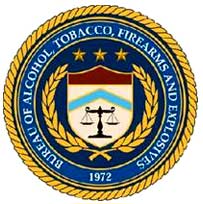ATF Open Letter to All Kansas Federal Firearms Licensees

Washington, DC –-(Ammoland.com)- The purpose of this open letter is to advise you of an important change to the procedure you may follow to comply with the Brady Handgun Violence Prevention Act, 18 U.S.C. § 922(t), when transferring a firearm to an unlicensed person.
The permanent provisions of the Brady law took effect on November 30, 1998. The Brady law generally requires Federal firearms licensees (FFLs) to initiate a National Instant Criminal Background Check System (NICS) background check before transferring a firearm to an unlicensed person.
However, the Brady law contains exceptions to the NICS check requirement, including an exception for holders of certain State permits to possess, carry, or acquire firearms. The law and implementing regulations provide that permits issued within the past 5 years may qualify as alternatives to the NICS check if certain other requirements are satisfied. Most importantly, the authority issuing the permit must conduct a NICS background check and must deny a permit to anyone prohibited from possessing firearms under Federal, State, or local law.
The Bureau of Alcohol, Tobacco, Firearms and Explosives (ATF) has reviewed the Kansas Personal and Family Protection Act, K.S.A. 2010 Supp. 75-7c01 through 75-7c19, which contains the provisions for a license to carry a concealed handgun, and has determined that Kansas’ license to carry a concealed handgun qualifies as an alternative to the background check required by the Brady law.
If you transfer a firearm to an unlicensed person pursuant to the permit alternative, you must comply with the following requirements:
- Have the transferee complete and sign ATF Form 4473, Firearms Transaction Record.
- Verify the identity of the transferee through a Government-issued photo identification (for example, a driver’s license).
- Verify that the license to carry a concealed handgun was issued within the past 5 years by the State in which the transfer is to occur, and that the license has not expired under State law.
- Either retain a copy of the transferee’s license to carry a concealed handgun and attach it to the Form 4473, or record on the Form 4473 any identifying number from the license, the date of issuance, and the expiration date of the license.
If you have any questions about Kansas’ license to carry a concealed handgun qualifying as an alternative to the NICS check, please call ATF’s Firearms Industry Programs Branch at (202) 648-7190.
Arthur HerbertAssistant Director
Enforcement Programs and Services
